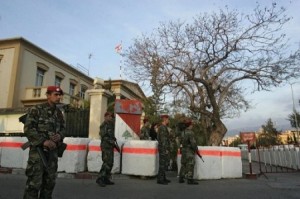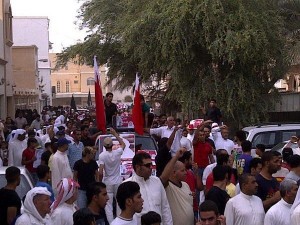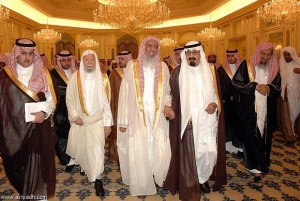SECRET SECTION 01 of 03 RIYADH 000182
NOFORN
SIPDIS
S/SRAP FOR AMBASSADOR HOLBROOKE
DOHA FOR AMBASSADOR HOLBROOKE
E.O. 12958: DECL: 02/10/2020
TAGS: PREL PGOV PTER KTFN SA AF PK
SUBJECT: SCENESETTER FOR SPECIAL REPRESENTATIVE AMBASSADOR
HOLBROOKE’S FEBRUARY 15-16 VISIT TO RIYADH
Ref: KABUL 500
RIYADH 00000182 001.2 of 003
Classified By: Ambassador James B. Smith for reasons 1.4 (B) and (D)
¶1. (C) Ambassador Holbrooke, Embassy Riyadh warmly welcomes
you to Saudi Arabia, which, by virtue of its historical and
cultural ties to Central Asia; personal relationships between
Saudi, Afghani and Pakistani leaders; financial power; and
leadership of the Muslim world, can play a central role in
implementing the President’s strategy for Afghanistan and
Pakistan. Your visit comes at a time of great potential but
great uncertainty: the Saudi-Afghan relationship appears to
be warming up, while the traditionally close Saudi-Pakistani
relationship has grown increasingly strained. The Saudis are
broadly supportive of our approach to Afghanistan and
Pakistan, but occasionally express skepticism about our
timing or our approach. Your visit provides an opportunity
to mine the Saudis’ wealth of experience in dealing with
Afghanistan, Pakistan, and extremism, and further explore
ways to translate our shared goals into action in the unique
Saudi context. We have requested meetings with xxxxxxxxxxxx.
¶2. (C) SAUDI-AFGHAN RELATIONS WARMING: President Karzai’s
February 2-3 visit to the Kingdom, although richer in
symbolism than substance, was a sign that lukewarm
Saudi-Afghan relations may finally be warming up. In his
official statement at the London Conference, FM Saud
announced a $150 million pledge of additional financial
support for Afghan reconstruction. He expressed broad Saudi
support for reconciliation, adding that they would be willing
to assist at the request of President Karzai- on the
condition that the Taliban sever its relationship with
Al-Qaeda and cease providing refuge to its leaders. While
not as forward leaning as we may have liked, FM Saud’s
statement put the Saudis on the record and created an
opportunity to put reconciliation talks back in
motion-eventually. Saudi participation at the Turkish-led
regional conference on Afghanistan on January 26 was further
evidence of the Saudi commitment to engagement. Karzai’s
visit showed that the King was ready to deal with Karzai as a
legitimate, Muslim head of state. However, the Saudis
continue to have concerns about Afghan corruption and believe
greater political incorporation of the Pashtun community is
essential. Their apparent wish to downplay Karzai’s
visit-as compared to the Afghans (reftel)-may also indicate
the King’s desire to keep some distance and maintain his
credibility as a potential reconciliation mediator.
¶3. (s/nf) but mediation not ready for prime time:
Privately, the Saudis tell us it’s still “too soon” to be
publicly discussing technical and financial aspects of
reintegration efforts. xxxxxxxxxxxx has made
clear that his marching orders are to work through
intelligence channels only until progress becomes
sustainable, at which point foreign ministries will be
brought in. In a recent meeting with the Ambassador, xxxxxxxxxxxx
hinted at but did not provide details about what
appears to be significant movement on the Saudi mediation
effort, with visits by high-level Taliban and Afghan
officials, since the Hajj. We surmise that xxxxxxxxxxxx is
reluctant to share information because the talks remain
delicate and he fears U.S. involvement could derail progress.
He has also voiced concern about how to address UNSCR 1267
prohibitions on dealing with various Taliban members.
¶4. (C) ZARDARI STILL THE PROBLEM IN PAKISTAN: The Saudis
generally agree that there is a need to deny terrorists
safehavens in Pakistan, but question whether the methods we
have outlined will be effective. Despite tense relations
with the Zardari government, close military and intelligence
cooperation continues between Saudi Arabia and Pakistan. The
Saudis believe opposition leader Nawaz Sharif can play a
“great role” in working with tribal chiefs and that “money is
better than bullets” in the fight against the Taliban. They
have started to fulfill their pledge from the Tokyo donor,s
conference (over half of the $700 million pledged has been
disbursed) and have expressed a willingness to continue with
financial support for a stable Pakistan. Saudi interlocutors
stress the importance of remembering that Pakistan remains
Riyadh 00000182 002.2 of 003
pre-occupied with issues on its Indian border, coloring its
ability to deal with the Taliban.
¶5. (C) IN THE ARMY WE TRUST: The tumultuous democratic
process in Pakistan makes the Saudis nervous, and they appear
to be looking for “another Musharraf”: a strong, forceful
leader they know they can trust. In his January meeting with
General Jones, the King cited President Zardari as an
impediment to denying terrorist safehavens, calling him an
“obstacle” and “a rotten head” that was infecting the whole
body. He maintained that the Pakistani Army was capable of
being a strong partner for the U.S., and opined that U.S.
development assistance would rebuild trust. He asserted that
that the Army was staying out of Pakistani politics in
deference to U.S. wishes, rather than doing what it “should.”
FM Saud told General Jones that we must reach out to tribal
leaders and separate “those we could work with” from “those
we must fight.” He believed that using the military to fight
extremists posed certain dangers, and that the credibility of
the army must be maintained. The Saudis were pushing
Pakistan’s civilian leaders to work together, but “compromise
seemed alien to Pakistani politicians.”
¶6. (C) TURKI’S TAKE: During a recent meeting with
Ambassador, former GIP Director Prince Turki Al-Faisal called
Afghanistan a “puzzle,” where establishing trust with Afghan
leaders, and recognizing the links between Pakistan and the
Taliban, were keys to success. All financial aid to the
Afghan government should be conditional: benchmarks must be
set for the leadership, and aid must be withheld until these
are met. Recent Saudi efforts to assist in Taliban mediation
had failed, he said, when “both sides fell short.” He
described the Taliban leadership as “fractured,” and
suggested the U.S. and NATO needed to target criminal
elements more vociferously and re-focus our attention on
capturing Osama Bin Laden and Ayman Al-Zawahiri. He
suggested Saudi Arabia, the U.S., China, Russia, Afghanistan
and Pakistan could join forces and share assets in order to
capture or kill bin Laden and Al-Zawahiri. This would break
the terrorists’ “aura of invincibility” and allow the U.S. to
“declare victory” and move on.
¶7. (S/NF) TERRORISM FINANCE: Terrorist funding emanating
from Saudi Arabia remains a serious concern. Over the last
year, however, Saudi Arabia has made important progress in
combating al-Qaida financing emanating from the country.
Sensitive reporting indicates that al-Qaida’s ability to
raise funds has deteriorated substantially, and that it is
now in its weakest state since 9/11. The Kingdom is also
cooperating more actively than at any previous point to
respond to terrorist financing concerns raised by the United
States, and to investigate and detain financial facilitators
of concern. Nonetheless, sustained engagement is required to
maintain the current momentum, particularly in providing the
Saudis with specific details and actionable information.
Your visit provides another opportunity to welcome the
progress Saudi Arabia has made, and reiterate the importance
that President Obama and the USG place on curtailing
fundraising activity by global terrorist groups in Saudi
Arabia, particularly those that undermine the stability of
Afghanistan and Pakistan.
¶8. (S/NF) TERRORISM FINANCE, CONTINUED: While in the past
the KSA stood reluctant to pursue Saudi donors who backed
groups that did not directly threaten the Kingdom, the Saudi
Ministry of Interior (MOI) has now demonstrated willingness
to take action, and has begun to detain individuals involved
in funding networks for groups such as Lashkar e-Tayyiba
(LeT), the Taliban, and in some cases even Hamas. Our TF
cooperation with the MOI is of utmost strategic importance to
U.S. national security as donors in Saudi Arabia continue to
constitute a source of funding to Sunni extremist groups
worldwide. Available intelligence reflects that the Kingdom
remains an important fundraising locale-especially during the
Hajj and Ramadan-for the Taliban, LeT, and other terrorist
groups based in Afghanistan and Pakistan. The MOI remains
almost completely dependent on the CIA to provide analytic
support and direction for its counterterrorism operations. As
such, our success against terrorist financing in the Kingdom
remains directly tied to our ability to provide actionable
intelligence to our Saudi counterparts. In order to enhance
the USG’s ability to influence and direct Saudi efforts to
Riyadh 00000182 003.2 of 003
disrupt terrorist financing, in 2008 we stood up a Treasury
attach office in Embassy Riyadh. This office actively
contributes to the daily intelligence sharing process that
is led by CIA.
¶9. (S/NF) TERRORISM FINANCE, CONTINUED: Saudi Arabia has
taken increasingly aggressive efforts to disrupt al-Qaida’s
access to funding from Saudi sources. An example of recent
progress by the KSA is the conviction of over 300 people for
involvement in terrorism, including some for providing
financial support. News reports suggest that appeals may be
opened to the media in order to enhance the deterrent effects
of such prosecutions. In addition, Assistant Interior
xxxxxxxxxxxx stated that
the Ministry of the Interior (MOI) deliberately timed its
August 19, 2009 press release regarding the arrest of 44
terrorist supporters to deter potential donors from giving
money to suspected terrorist groups during Ramadan. Although
a great deal of work remains to be done,xxxxxxxxxxxx
has given his commitment to work with the United States on
Taliban finance, and has said that the MOI will arrest
individuals involved in Saudi-based Taliban fundraising
activities - even if involved in the reconciliation process -
when provided with actionable intelligence.
¶10. (S/NF) IDENTIFYING OPPORTUNITIES: The Saudis have
expressed broad support for the President’s strategy on
Afghanistan and Pakistan, but often balk when asked to
designate an SRAP to coordinate policy with the USG and
others. In part, this reflects the centralized Saudi
decision-making process and the reality that issues related
to Afghanistan and Pakistan policy are not delegated, but
rather dealt with directly by the King and members of the
intelligence community. While the Saudis are hesitant to
delegate authority and tend to make only broad-based
commitments to high-profile, multilateral initiatives, they
appear ready, willing and eager to share their experiences
with us and identify greater opportunities for cooperation on
a bilateral basis. Your visit provides an opportunity to
further explore how we can best translate our shared goals
into action in the unique Saudi context.
Smith
……………………..
Reference ID: 10RIYADH182
Created: 2010-02-12 12:12























